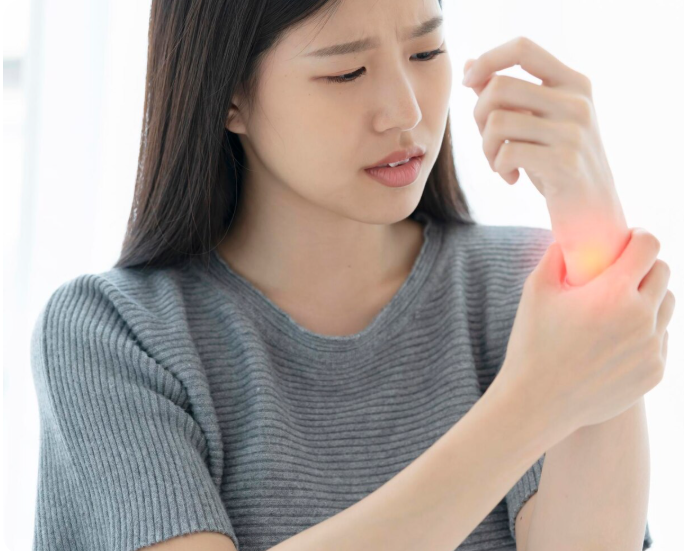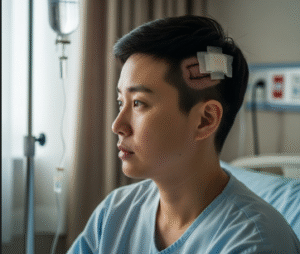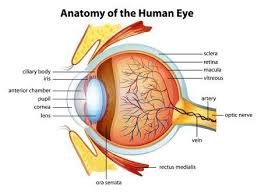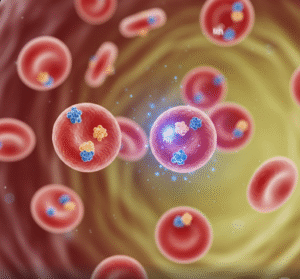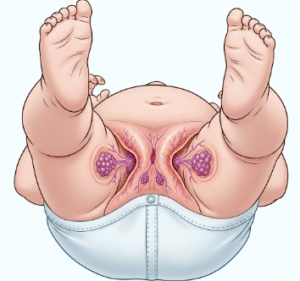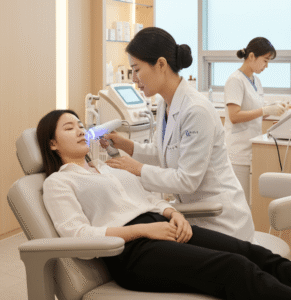Overview
Degenerative arthritis, commonly known as osteoarthritis (OA), is a chronic joint disease characterized by the breakdown of cartilage and changes in the bone structure. It leads to pain, stiffness, and reduced mobility, primarily affecting the knees, hips, hands, and spine. In Korea, degenerative arthritis is increasingly common due to an aging population. Hospitals like Seoul National University Hospital, Asan Medical Center, and Samsung Medical Center offer advanced diagnostics, medical management, and surgical interventions to improve quality of life.
What is Degenerative Arthritis?
Degenerative arthritis is a progressive joint disorder caused by wear and tear of the cartilage that cushions joints. Over time, the cartilage wears down, leading to bone-on-bone contact, joint inflammation, and deformity. It predominantly affects older adults but can occur in younger individuals due to injury, obesity, or genetic predisposition.
Symptoms
- Joint pain, especially after activity or at the end of the day
- Stiffness, particularly in the morning or after periods of inactivity
- Swelling and tenderness around affected joints
- Reduced range of motion
- Bone spurs causing visible bony growths
- Crepitus (grating or cracking sensation during joint movement)
Causes
- Age-related degeneration of joint cartilage
- Repetitive joint stress or injury
- Obesity, increasing load on weight-bearing joints
- Genetic factors and family history of arthritis
- Joint malalignment or prior fractures
- Metabolic disorders such as diabetes or hemochromatosis
Risk Factors
- Age over 50 years
- Female gender, particularly post-menopause
- Obesity or overweight
- Previous joint injury or surgery
- Sedentary lifestyle or excessive joint strain
- Family history of osteoarthritis
Complications
- Chronic joint pain and functional limitation
- Reduced mobility affecting daily activities
- Joint deformity and bone spurs
- Secondary muscle weakness due to disuse
- Increased risk of falls and fractures
- Emotional stress or depression due to chronic pain
Prevention
- Maintaining a healthy weight to reduce joint stress
- Regular low-impact exercise (swimming, walking, cycling)
- Proper posture and ergonomic adjustments during daily activities
- Early treatment of joint injuries
- Balanced diet rich in anti-inflammatory nutrients and calcium
- Avoid repetitive overuse of vulnerable joints
Treatment Options in Korea
Korean hospitals provide multidisciplinary care for degenerative arthritis focusing on pain relief, joint function improvement, and prevention of further degeneration.
- Diagnosis
- Physical examination to assess joint function and tenderness
- X-rays, MRI, or CT scans to evaluate cartilage and bone changes
- Laboratory tests to rule out inflammatory arthritis
- Assessment of mobility and quality of life
- Medical Treatments
- Pain management using NSAIDs or acetaminophen
- Topical anti-inflammatory creams
- Corticosteroid injections for localized inflammation
- Viscosupplementation (hyaluronic acid injections) for knee OA
- Surgical Treatments
- Joint replacement surgery (knee, hip) for advanced cases
- Arthroscopic surgery for cartilage repair or debris removal
- Osteotomy for joint realignment in selected patients
- Rehabilitation & Supportive Care
- Physical therapy to maintain mobility and strengthen muscles
- Occupational therapy for adaptation to daily activities
- Use of supportive devices like braces or canes
- Patient education on self-management strategies
- Specialized Hospitals in Korea
- Seoul National University Hospital – Orthopedic surgery and rehabilitation
- Asan Medical Center – Multidisciplinary arthritis care
- Samsung Medical Center – Advanced joint replacement and minimally invasive procedures
- Regional orthopedic and rheumatology clinics for long-term follow-up
- Long-Term Follow-Up
- Regular joint assessments and imaging as needed
- Adjustment of medications and therapy plans
- Lifestyle counseling for weight management and exercise
- Monitoring for post-surgical recovery and prosthesis function

